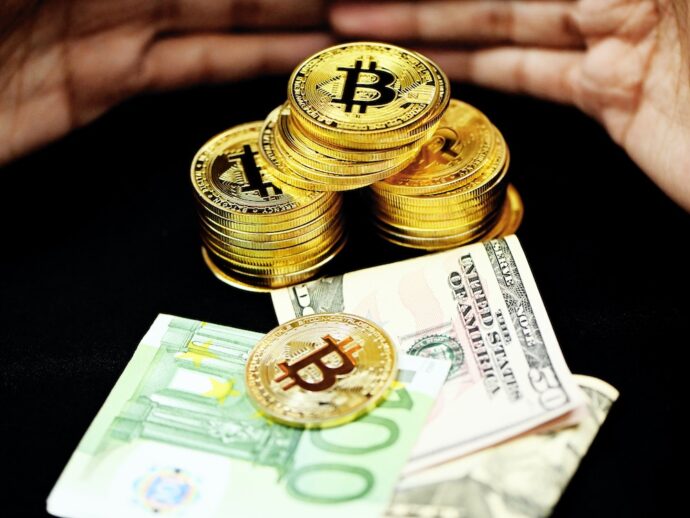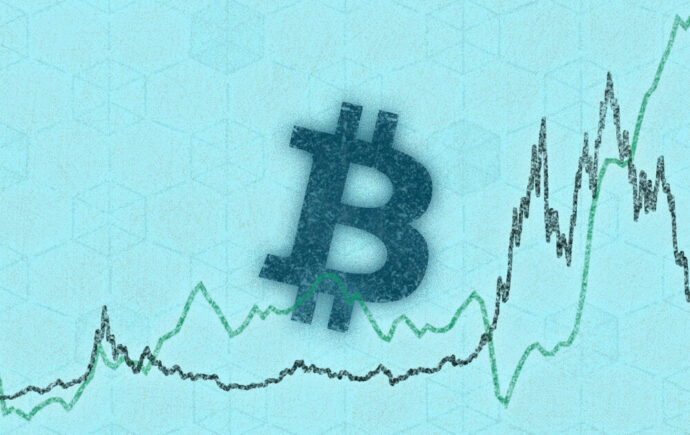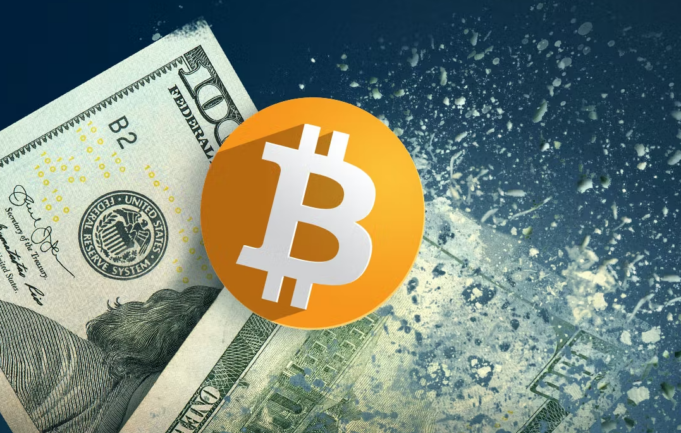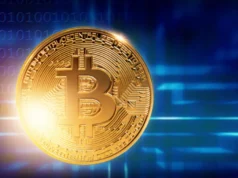Bitcoin entered the market long back, but headlines around this investment concept don’t stop. Market trends have an impact on investment strategies and trends. But, there is one market condition that in itself is challenging. But does it impact the market, or can investment decisions proceed without it?
The particular trend that the market witnesses now and then is inflation. Inflation is hitting a new high. As a commoner, the constant thought you can have in your mind is to hoard anything and everything likely to experience a hit because of this trend.
Now, as an investor, you must look for the market trends before making your decisions; you need to cater to the inflation trends, too.
When you hear these terms together, you might conclude that when you begin trading in such a scenario, you will only go down the hill.
However, this is a popular belief. The reality is different from what you expect it to be.
Crypto dealings are known for their resistance to inflation. Also, the contrary arguments suggest that these investment options belong to the new age and belong to a digital nature. They are not connected with the assets belonging to the real world.
But, it would be best if you did not forget that the cryptocurrency world has new and unique transactions, which also belong to inflationary designs.
The outbreak of the pandemic has been a game-changer for different kinds of investment options. However, the cryptocurrency story is quite different from what was experienced by fiat money.
The countries started printing an extra amount of money that helped in meeting the stimulus needs, but the value was losing its charm. In other words, the prices were going down. Limited supply helped cryptos like bitcoin expand their market as the demand rose with each passing day.
So much so that the traditional investors of fiat money started showing their interest in bitcoin as they could see the potential held by this currency. The rise worked as a hedge and was the competitor of inflation.
Inflation Concept

Now, what exactly is the concept of inflation?
It is an economic term often related to the loss of values that different currencies across the globe tend to witness whenever there is a change in the demand and supply pattern of the market. Also, when the price of consumer goods changes, you should know that inflation is around the corner.
It can be both positive and negative. Positive inflation means that the prices of consumer goods in your home country are reducing. It means the affordability of the common person will increase. However, whenever the prices reach the upper range, it means that inflation is increasing.
Also, economists shower different perspectives on these terms as an economic concept. There is one chunk of economists that inflation is helpful as it keeps the purchasing power of people intact and hence, helps stimulate the economy.
However, it can become a matter of concern when it goes out of hand, especially during unforeseen circumstances like the coronavirus pandemic.
However, there is another chunk of economists that feel that the high degree of mining of the bitcoin and printing of fiat money is the thing that causes such disturbances and has nothing to do with the fluctuating degree of inflation.
Digging The Correlation Between Inflation And Bitcoin

When you sit and discuss the correlation between these terms, you will come across many cryptocurrency experts and advocates who will discuss the power of the central bankers.
They will help you understand that bankers should not be allowed to influence economic circumstances by applying monetary policies. If this step is taken, it is nothing short of an economic disaster.
In addition to this understanding, they help develop another viewpoint that the digital world and investment opportunities have their own ideas, opinions, and features. The most famous cryptocurrency – BTS, or the bitcoin as all understand it, shows quite a considerable degree of resistance to the incompetence posed by the central governments and bankers functioning in different spheres.
The idea behind this is that they are subject to decentralization. Also, another point that should not be missed is that one cannot shut them down.
There are some more ideas formulated in the context.

The viewpoint is that merely attaching the term ‘currency’ to the end of the family of digital assets does not mean that they are currencies in reality.
Hence, crypto does not have the discretion to give recordable responses to pressures that the concept and causes of inflation have stimulated.
However, if there was a foreign currency in action, the responses could have been possible to the maximum limit.
Another point of concern, as put by the market experts, is that bitcoin, a cryptocurrency, functions as a counter-inflationary asset.
Now, what does this term stand for?
As a counter-inflationary asset, bitcoin forms a correlation with the effects that any traditional or local currency will undergo.
Now, the question is when will these effects come into the picture?
They will come into the picture when the market value of the local currency drops. The drop will enhance the demand for cryptocurrency and its investments. The idea behind this is simple.
People are potential investors, and they are on the lookout for a better degree of value storage whenever the local currency has witnessed the changes introduced by inflation.
Hence, price fluctuations resulting from inflation and cryptocurrency have a proper relationship. Consider exploring more dimensions about the same at the guardian.ng.
Both markets are complex, but bitcoin is designed to perform as a hedge. But as the uncertainties have it, there are many other things that you need to cater to, while decoding the relationship between them.

Conclusion
The investments of an institutional nature largely drive cryptocurrency. However, the generic market movements have an immediate concern with them. Hence, you need to understand both of them on a parallel platform before you decide to put in your money over here.















